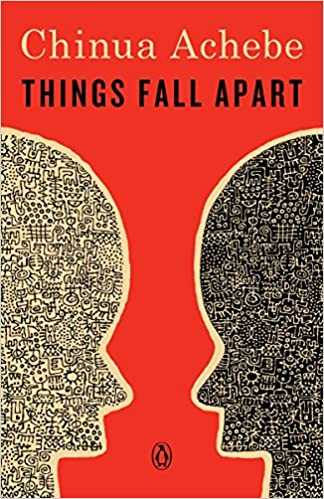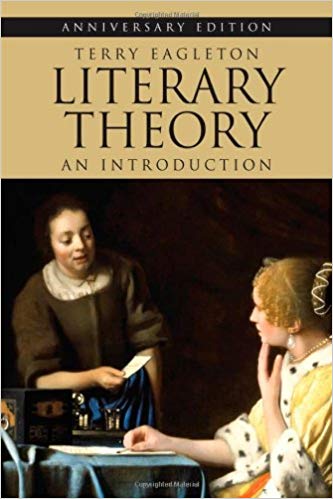Eng. 34011
Spring 2008
T, TR 5:30-6:45 PM, SFH 118
Introduction:
This course introduces you to some of the major world/postcolonial authors. The postcolonial cultural production can be roughly divided into three overlapping phases: the works produced during the contact phase, the native responses to colonialism, and the postcolonial cultural production both from the global periphery and the diasporic authors. Postcolonialism is a dynamic, expansive, and contested field of literary study involving a high degree of multidisciplinarity and theoretical innovation. This course will also introduce you to the early and current debates of the field and possibilities of the field in the future. We will pay special attention to the current state of high capital and neoliberal globalization and the artistic and critical responses being offered in resistance. We will read these texts of the global periphery not simply as crystallized versions of the cultures that they attempt to represent, but also use them as points of departure into a study of the larger power structures within which these texts are produced. In doing so we will also question our own place and privileged location within the academy and imagine the possibilities of making our work commensurate with the acts of semiotic and material resistance being offered to the reigning power structures by the cultures of the global south in the spirit of what Gramsci describes as the organic intellectuals. Using printed texts and film, this course will introduce you to the current global negotiation of power, the articulation of native resistance to the imperatives of globalization, and the native attempts at achieving social justice. In doing so we will also touch upon the role of the nation-state within the current climate of neoliberal globalization and the global war on terror, the politics of the diasporic cultural production, and the possibilities of rhizomatic global popular alliances.
Required Texts:
The Bedford Anthology of World Literature, Vol. 6
Roy, Arundhati. The God of all Small Things.
Edgell, Zee. Time and the River.
Goodman, Robin. World, Class, Women.
Occasional handouts/Course Reserves. [HO/RES]
Course Policies and Requirements:
Students are expected to come prepared for class: This involves reading the assigned texts, listening carefully to their peers, and contributing their views in a collegiate and stimulating way. Attendance is mandatory.
Distribution of Points:
Response Journals 100 Points
Mid-Term Exam 200 Points
Community Reading Project 300 Points
Participation 100 Points
Term Paper 300 Points
Total 1000 Points
Response Journals(100 Points): Every week you will turn in a journal responding to the readings assigned for the week. The journal should be minimum two pages, double-spaced, font 12 Times. Following are some, but not all, questions you may consider:
What does the text say about gender, race, ethnicity, class, nation, or power and what are your views about it?
Did you agree or disagree with the text’s politics? why?
What is the text critiquing? • How can we relate this text to contemporary realities?
Does this text raise the question of justice? If so, how and for whom? • Does the text provide a politics for a better future?
How does the form compare to the metropolitan techniques of creative production? (For creative writing majors)
Mid-Term Exam (200 Points)
The Mid-term will be given in the eighth week. The exam will include three essay questions. I will give you a comprehensive study guide a week before the exam.
Community Reading Project (300 Points)
An important aspect of higher education, at least for this class, is to find ways to interact with the communities around us. To meet this important goal, you will be divided into five equal groups in the first week of classes. Each group will be assigned a novel that the group will be required to use as the text for a Community Reading Project. The groups will be expected to meet several times over the semester and will be evaluated according to their overall performance and the last meeting that I will attend at a mutually decided time and space. I will give you a separate handout to explain the rules, requirements, and expectations of this project.
Term Paper (300 Points)
The final term paper will be due on the last day of class. The paper should be 10-15 pages, written in MLA style, with a clearly defined thesis and a coherent argument. I expect you to use at least one of the major critical approaches that you must have learned in your Critical Theory course. I would encourage you to choose your topic early and to conduct extensive research. I will be available to assist during all the stages of your research and composition process. I will give you a separate handout about the detailed requirements of this assignment. No late papers please.
Class Participation (100 Points)
As this is a discussion format class, your thoughtful participation is essential to the success of the class. I encourage collegiate, open, and thought-provoking class discussions. Remember, we are all here to learn, so let us share our ideas and knowledge to make this class into a dynamic learning experience. I encourage you to speak-up in the class, not just about the texts but also if you have any suggestions about how to improve our learning during the course.
Attendance
You are expected to attend the class regularly. You will be in the danger of failing the course if you miss more than FOUR class sessions.
Plagiarism
Plagiarism is against the law, and will result in automatic failure in the course. Simply stated, plagiarism is when you try to pass anyone else’s work as your own or if you turn in your own work written for another class.
ADA
If you have a disability, please contact the campus ADA office and bring me the necessary documentation. I will try my best to accommodate you if you need any special instruction or assistance.
Grading Scale:
A 950-1000
A- 900-949
B+ 860-899
B 830-859
B- 800-829
C+ 760-799
C 739-759
C- 700-729
D+ 660-699
D 630-659
D- 600-629
F Less than 600 Points
Weekly Schedule
Note: This is a tentative schedule. I may change this schedule during the semester. You will be informed of the changes well in advance, but it will be your responsibility to keep any such changes in mind while preparing for the class.
The assigned readings are for the whole week. Generally, we will discuss the assigned readings, spread over the week, in the order in which they are listed below. YOU ARE EXPECTED TO HAVE READ THE ASSIGNED TEXTS OVER THE WEEK-END.
Week One
Introduction to the course.
In-Class diagnostic Journal
New Terms: Center/periphery, Colonialism, Imperialism, Third World
Readings:
“In the World.” (BA 97). Kipling, “The White Man’s Burden.” (BA 104), Conrad
“Heart of Darkness” (BA pp. 61, 63, and 83)
Class Discussion: “ In the World.” Kipling. New Terms: Binarism, Othering, Going native
Readings:
Achebe, “An Image of Africa,” (BA 107), Frantz Fanon, “ Black Skin White Masks,” (BA 760) “From Wretched of the Earth” (BA 128).
Week Two
Class Discussion: Achebe and Fanon.
New Terms: Diaspora, Discourse
Readings:
Aime Cesaire, “A Tempest,” (BA 135), Chinweizu, “Decolonizing the . . .” (BA 142).
Class Discussion: Cesaire and Chinweizu.
New Terms: Filiation/Affiliation
Readings:
Senghor, “Negritude,” (BA 884), Ngugi, “Creating Space . . .” (BA 149).
Week Three
Class Discussion: Senghor, Ngugi.
New Terms: Hybridity, Hegemony, Dominance
Readings:
P’bitek (BA 894-898), Head, “The Deep River,” (BA 1205)
Class Discussion: P’bitek, Head.
New Terms: Native, Nativism
Readings:
Mckay (BA 875-76), Gordimer (BA 910).
Week Four
Class Discussion: Mckay and Gordimer
New Terms: Authenticity, Social Darwinism
Readings:
Edward Said, “From Question of Palestine,” (Handout), Darwish (BA 543-46)
Class Discussion: Said and Darwish
New Terms: Neoliberalism, Cosmopolitanism, Globalization
Readings:
Mahfouz, “Zaabalawi,” (BA 797), Rifaat, “My World of the Unknown,” (BA 1130).
Week Five
Class Discussion: Mahfouz and Rifaat
New Terms: Subaltern, Appropriation, Abrogation
Readings: Mukherjee,
“A Wife’s Story,” (BA 1316), Hossain, “Sultana’s Dream,” (BA 323).
Class Discussion: Mukherjee, Hossain
New Terms: Agency, Mimicry
Readings:
Narayan, “A Horse and Two Goats,” (BA 785), Rao, “Foreword . . .” (BA 1300), Naipaul, “Our Universal Civilization,” (BA 1313).
Week Six
Class Discussion:
Narayan, Rao, and Naipaul.
Midterm
New Terms: Magic Realism
Readings:
Marquez, “ A Very Old Man . . .” (BA 924), Fuentes, “The Prisoner of . . .” (BA 938).
Class Discussion: Marquez, Fuentes.
New Terms: Neoimperialism, Militarization, Corporatization.
Week Seven
Class discussion: Marquez and Fuentes.
Readings:
Roy. The God of all Small Things.
Week Eight and Nine
Class discussion: Roy
Readings;
Edgell. Time and the River
Week Ten and Eleven:
Class discussion: Edgell.
Week Eleven and Twelve:
Class discussion: Good man. World, Class, Women.
Week Thirteen and Fourteen
Concluding Discussion.
Final paper workshops.


